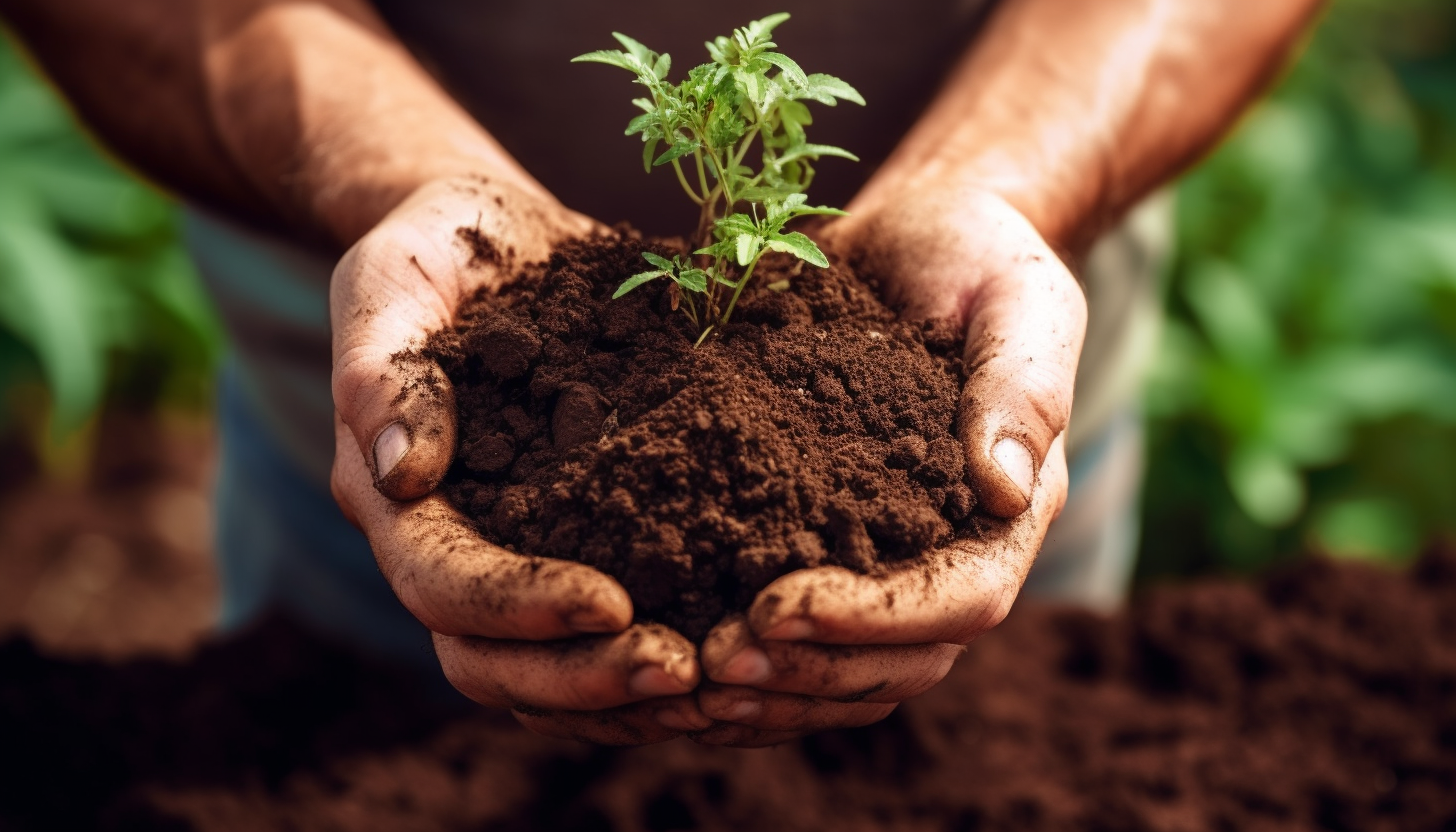P
May 28, 2023
Reviving a Struggling Garden: Tips for Improving Soil Quality
#Gardening
#Soil Quality
#Soil Structure
#Soil Nutrition
#Drainage
#Organic Matter
#Garden Renovation
#Complementary Plants
#Ecosystem

reviving-struggling-garden-thumbnail
Understanding Soil Quality
Improving the quality of soil in your garden is essential for creating a thriving ecosystem. The health of your plants and the overall beauty of your landscape depend on it. But what is soil quality? Simply put, it's the health and vitality of the soil. It's not just about the quantity of nutrients but also the structure and the ability of the soil to retain water, absorb nutrients, and withstand compaction. The quality of your soil directly impacts the vigor of your plants, the health of your garden ecosystem, and the sustainability of your landscape.
So, how can you improve the quality of your soil? The first step is to understand the various components that make up soil. These include the physical structure of the soil, the chemical composition, and the biological activity. The physical structure of the soil refers to the arrangement of soil particles and the spaces between them. The chemical composition includes the different minerals, gases, and organic matter that make up the soil. The biological activity refers to the organisms that contribute to the health and productivity of the soil, such as earthworms, fungi, and bacteria.
Improving Soil Structure
One of the most important aspects of improving soil quality is improving the structure of the soil. A good soil structure is composed of a mixture of different-sized particles, which provides good drainage, aeration, and moisture retention. The size of the particles can vary from sand, which has the largest particle size, to silt, which has the smallest. A well-structured soil also has a mixture of different types of particles, such as sand, silt, and clay. This variety of particle sizes allows for better drainage, as the larger particles can hold more water and the smaller particles can more easily drain it away.
Improving Soil Nutrients
Another crucial aspect of improving soil quality is improving the soil's nutrient content. The nutrients in your soil not only feed your plants but also contribute to the health of your soil. The three main nutrients plants need are nitrogen, phosphorus, and potassium, commonly referred to as NPK. These nutrients are typically found in the form of organic matter, which is the decomposed remains of plants and animals. Organic matter can provide a rich source of nutrients for your plants and also helps improve the structure of your soil.
Drainage and Organic Matter
Another important aspect of improving soil quality is improving the drainage of your soil. Poor drainage can lead to stagnant water, which can damage the structure of your soil and prevent your plants from growing optimally. One way to improve drainage is by adding organic matter to your soil. Organic matter acts as a sponge, absorbing excess water and releasing it slowly to the rest of the soil. This ensures that the water is distributed evenly throughout the soil and doesn't collect in one area, which can damage the structure of the soil.
Complementary Plants and Ecosystem Gardening
When it comes to improving soil quality, it's also important to consider the ecosystem of your garden. Certain plants can have a positive or negative effect on the quality of your soil. For example, plants that have deep roots, like carrots, can help improve the structure of your soil by bringing up nutrients from deeper layers. However, plants that have shallow roots, like strawberries, can damage the structure of your soil by pulling the soil apart. Additionally, plants with similar growing needs often complement each other, creating a balanced ecosystem in your garden. For example, nitrogen-fixing plants, like clover, can improve the quality of your soil by providing a natural source of fertilizer.
The Bottom Line
Improving the quality of your soil is an essential part of creating a thriving garden. It not only provides nutrients for your plants but also enriches the structure of the soil, which can promote better drainage, aeration, and moisture retention. By reviving a struggling garden, you can not only improve the health of your plants but also the sustainability of your landscape. The key to improving soil quality is understanding the various components of soil, including its physical structure, chemical composition, and biological activity. Then, you can implement strategies to improve each of these aspects to promote a healthy and productive soil.


